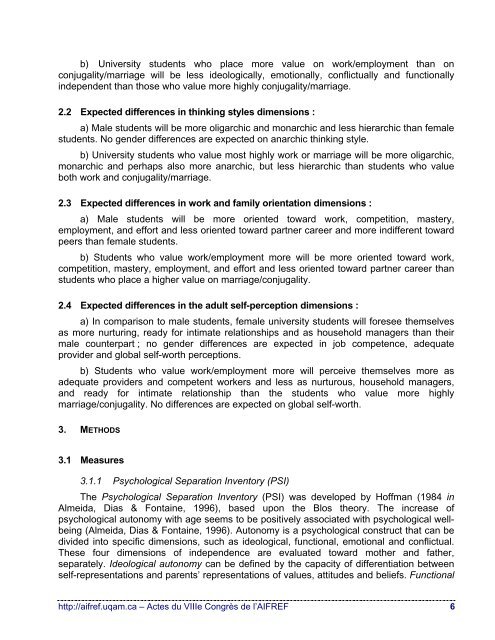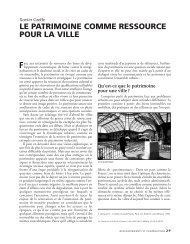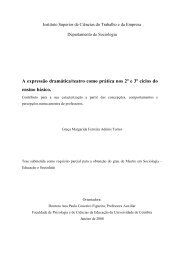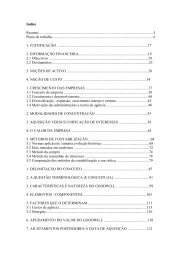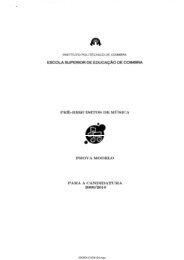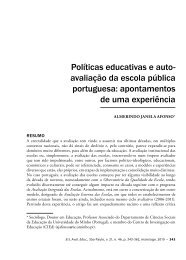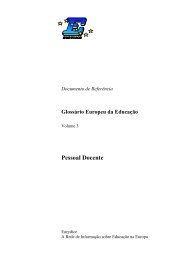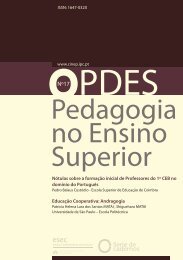) University students who place more value on work/employment than onconjugality/marriage will be less ideologically, emotionally, conflictually and functionallyindependent than those who value more highly conjugality/marriage.2.2 Expected differences in thinking styles dimensions :a) Male students will be more oligarchic and monarchic and less hierarchic than femalestudents. No gender differences are expected on anarchic thinking style.b) University students who value most highly work or marriage will be more oligarchic,monarchic and perhaps also more anarchic, but less hierarchic than students who valueboth work and conjugality/marriage.2.3 Expected differences in work and family orientation dimensions :a) Male students will be more oriented toward work, competition, mastery,employment, and effort and less oriented toward partner career and more indifferent towardpeers than female students.b) Students who value work/employment more will be more oriented toward work,competition, mastery, employment, and effort and less oriented toward partner career thanstudents who place a higher value on marriage/conjugality.2.4 Expected differences in the adult self-perception dimensions :a) In comparison to male students, female university students will foresee themselvesas more nurturing, ready for intimate relationships and as household managers than theirmale counterpart ; no gender differences are expected in job competence, adequateprovider and global self-worth perceptions.b) Students who value work/employment more will perceive themselves more asadequate providers and competent workers and less as nurturous, household managers,and ready for intimate relationship than the students who value more highlymarriage/conjugality. No differences are expected on global self-worth.3. METHODS3.1 Measures3.1.1 Psychological Separation Inventory (PSI)The Psychological Separation Inventory (PSI) was developed by Hoffman (1984 inAlmeida, Dias & Fontaine, 1996), based upon the Blos theory. The increase ofpsychological autonomy with age seems to be positively associated with psychological wellbeing(Almeida, Dias & Fontaine, 1996). Autonomy is a psychological construct that can bedivided into specific dimensions, such as ideological, functional, emotional and conflictual.These four dimensions of independence are evaluated toward mother and father,separately. Ideological autonomy can be defined by the capacity of differentiation betweenself-representations and parents’ representations of values, attitudes and beliefs. Functionalhttp://aifref.uqam.ca – Actes du VIIIe Congrès de l’AIFREF 6
autonomy is the ability to take care of one’s own needs without the help of parents.Freedom from the need for acceptance and emotional support from parents is the maincharacteristic of emotional autonomy. Finally, freedom from excessive guilt, anxiety andanger toward conflicts with parents defines conflictual autonomy. The Portuguese version ofthe inventory (Almeida, Dias & Fontaine, 1996) confirmed the four initial dimensions towardeach parent, which presented good internal reliability (>.80). (Almeida, Dias & Fontaine,1996 ; Fontaine, 1990) (Table 1).3.1.2 Thinking Style Inventory (TSI).The Thinking Style Inventory (TSI) designed by Sternberg and Wagner (Sternberg,1997) was based upon the Self-Government Theory (Sternberg, 1994, 1997). According tothis theory, thinking styles includes five dimensions : functions (executive, judicial andlegislative), leanings (conservative and progressive), scope (internal and external), levels(local and global) and forms (monarchic, hierarchic, oligarchic and anarchic). For thepurpose of this study, only the latter was observed because it is expected to be closelyassociated with the organization of life goals.Previous factorial analysis has shown that different forms of thinking styles loadeddifferent factors : the oligarchic and the hierarchic styles are clearly differentiated (Table 1).In spite of its validity and reliability, the TSI has never been used other than in thestrictly academic domain, namely in role balancing studies.3.1.3 Work and Family Orientation Questionnaire (W<strong>OF</strong>O).The Work and Family Orientation Questionnaire (W<strong>OF</strong>O) was constructed by Spence& Helmreich (1978) and presents seven scales which assess the commitment to the workrole : orientation toward work, mastery, competition and effort, employment concerns,concern with partner’s career aspirations, and indifference toward peers. It also includes, ina complementary questionnaire, some questions about the relative importance attributed tomarriage/conjugality and employment/work, the ideal number of children, as well as otherquestions concerning educational aspirations.This questionnaire has been used with secondary and college students in severalinvestigations of the prospective balancing of family and work roles, focused on genderdifferences. Strong and positive correlations between masculinity and work, mastery andcompetition have been found (Table 1).3.1.4 Adult Self-Perception Profile (ASPP).The Adult Self-Perception Profile (ASPP) was developed by Messer & Harter (1986) toassess the multidimensional adult’s self-concept. It includes eleven scales that underline thedifferentiation of adult’s perceived sense of competence/adequacy from a developmentalperspective. For this study, five specific domains were assessed : job competence (orfeeling of competence, productivity, pride in one’s work) household management (theperception of capacity to effectively handle and oversee activities within domestic context),nurturance (the perception of ability to care for others), adequate provider (the perception ofability to supply the means of support for oneself and significant others) and intimaterelationships (the capacity to create and maintain close, meaningful interactions with a7 http://aifref.uqam.ca – Actes du VIIIe Congrès de l’AIFREF


